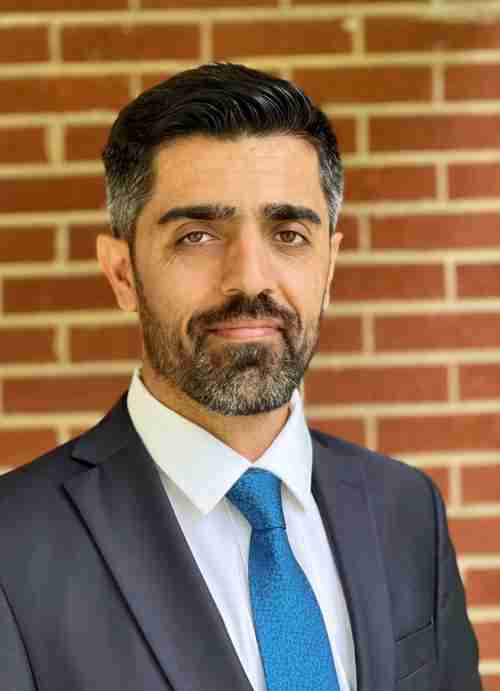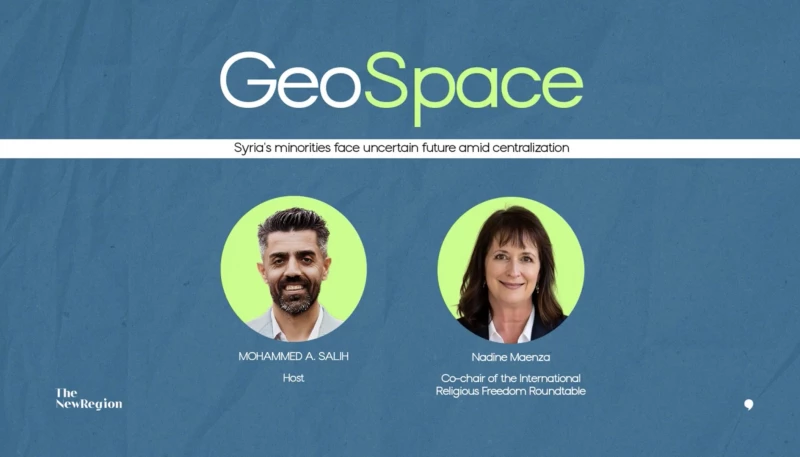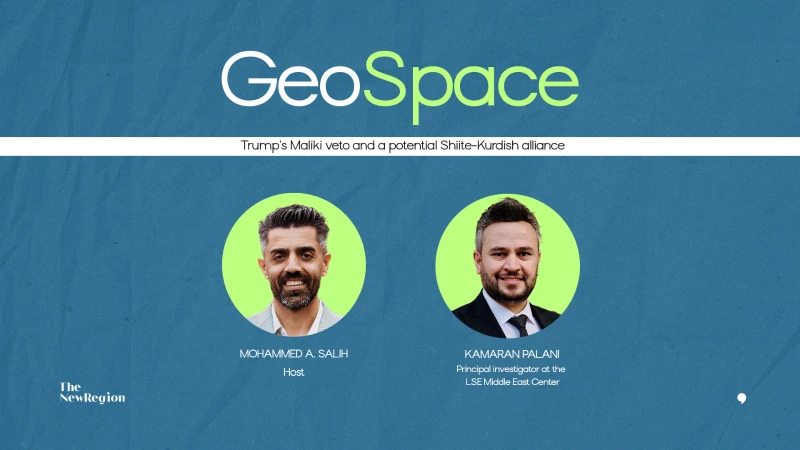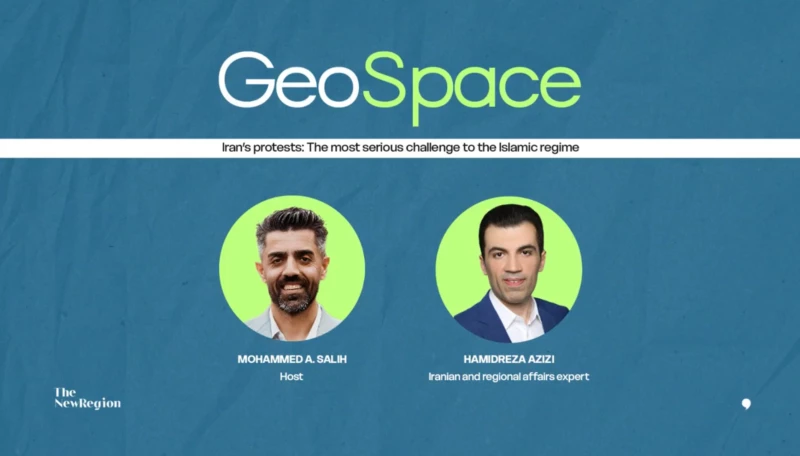On the latest episode of The New Region's GeoSpace series, recent escalations between Iran and Israel took centerstage, with host Mohammed A. Salih and Farzan Sabet, a managing researcher at the Sanctions and Sustainable Peace Hun at the Geneva Graduate Institute's Global Governance Center, discussing the different outcomes of the conflict and various ways that further developments may unfold.
“So I think the immediate goals of the operation are to significantly degrade the nuclear program, setting it back by at least a year,” Sabet said, noting that from Israel's perspective, “they'll seek to do more and to also suppress Iran's offensive military capabilities, especially its missile and drone programs... therefore reducing Iran's ability to retaliate both in the short and long term.”
Sabet, at the current stage of the conflict, does not think that Israel will aim for a “regime change” in Iran, caveating however, that they may “attempt some kind of high-level regime decapitation before ending their campaign.”
Addressing a question by the host about what would constitute a victory for Tehran, who has suffered “heavy” blows thus far, Sabet said that in the case of a deal being struck that allows Iran to maintain “some minuscule or residual fuel cycle and enrichment capabilities, which they could point to as continuing the country's right to enrich,” they can “kind of” try to sell that as a victory.
That would, however, be “hard to imagine,” added the researcher, “I think at present, both President Trump and Israel will pursue maximalist goals.”
Regarding the involvement of the US, Sabet said that he had discussed the matter with US officials prior to the war, and “they saw the initiation of any conflict by Israel as a process which would attempt to inevitably draw in the United States to finish the job," postulating that he does not “see how you start this war without having some kind of contingency for finishing the job.”
Sabet asserted that if Iran “decides to capitulate, then I think it really is over for them...you kind of put up a sign that we're open for business, and weakness and signaling weakness invites challenge.”


 Facebook
Facebook
 LinkedIn
LinkedIn
 Telegram
Telegram
 X
X


